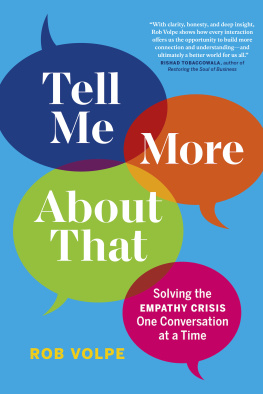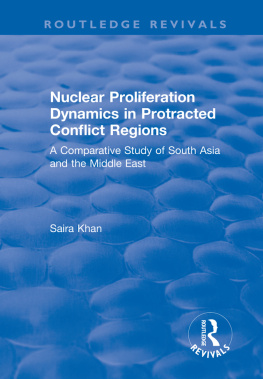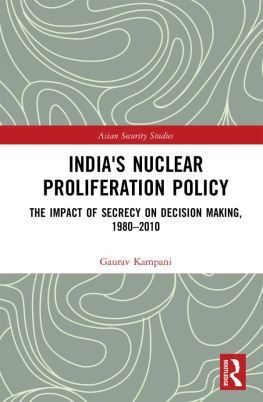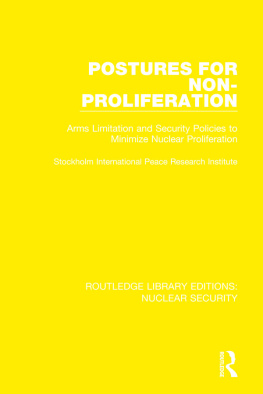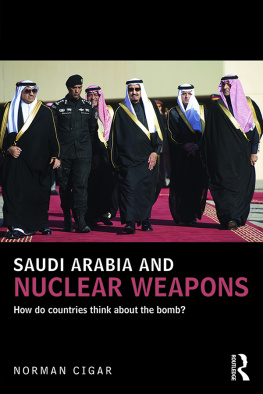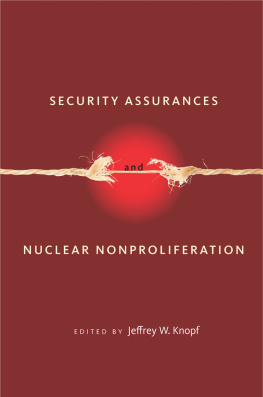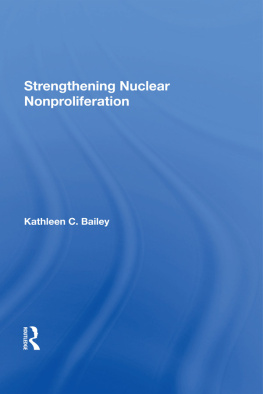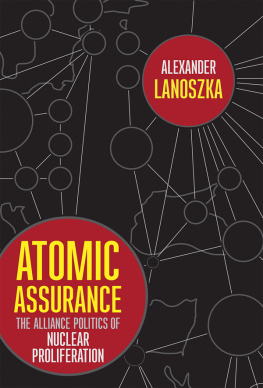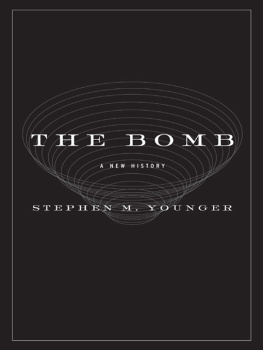Leveraging Latency
DISRUPTIVE TECHNOLOGY AND INTERNATIONAL SECURITY
Series editors
BENJAMIN JENSEN
Marine Corps University and Center for Strategic and International Studies
JACQUELYN SCHNEIDER
Hoover Institution, Stanford University
BRANDON VALERIANO
Marine Corps University

Oxford University Press is a department of the University of Oxford. It furthers the Universitys objective of excellence in research, scholarship, and education by publishing worldwide. Oxford is a registered trade mark of Oxford University Press in the UK and certain other countries.
Published in the United States of America by Oxford University Press
198 Madison Avenue, New York, NY 10016, United States of America.
Oxford University Press 2023
All rights reserved. No part of this publication may be reproduced, stored in a retrieval system, or transmitted, in any form or by any means, without the prior permission in writing of Oxford University Press, or as expressly permitted by law, by license, or under terms agreed with the appropriate reproduction rights organization. Inquiries concerning reproduction outside the scope of the above should be sent to the Rights Department, Oxford University Press, at the address above.
You must not circulate this work in any other form and you must impose this same condition on any acquirer.
Library of Congress Cataloging-in-Publication Data
Names: Volpe, Tristan A., author.
Title: Leveraging latency : how the weak compel the strong with nuclear technology /
Tristan A. Volpe.
Description: New York, NY : Oxford University Press, [2023] |
Series: Disruptive technology and international security series |
Includes bibliographical references and index.
Identifiers: LCCN 2022040749 (print) | LCCN 2022040750 (ebook) |
ISBN 9780197669532 (hardback) | ISBN 9780197669556 (epub)
Subjects: LCSH: Nuclear nonproliferationPolitical aspects. |
Nuclear weapons. | Nuclear arms control. | International relations.
Classification: LCC JZ5675 .V65 2023 (print) | LCC JZ5675 (ebook) |
DDC 327.1/747dc23/eng/20221021
LC record available at https://lccn.loc.gov/2022040749
LC ebook record available at https://lccn.loc.gov/2022040750
DOI: 10.1093/oso/9780197669532.001.0001
Contents
The inspiration for this book emerged during a discussion with friends on a muggy night in Washington, DC, over the summer of 2011. Irans nuclear program was ramping up enrichment activities at the time. I had just returned from a short course on the nuclear fuel cycle at Brookhaven National Laboratory. Grant Schneider deserves credit for suggesting that the Iranians may have already acquired some degree of coercive leverage with their enrichment capabilities. I spent the next decade investigating this basic idea across four institutions.
I enjoyed several formative years at the George Washington University and the Institute for Security and Conflict Studies (ISCS) at the Elliott School of International Affairs. From 2011 to 2013, I began my dissertation research under the superb mentorship of Charles Glaser, Alex Downes, and George Quester. They created an excellent environment for me to refine early ideas about compellence with nuclear latency. The incredible pool of faculty and graduate student talent at ISCS also provided critical feedback on my research, notably Austin Carson, Rose Kelanic, Inwook Kim, Sameer Lalwani, Julia Macdonald, Harris Mylonas, Elizabeth Saunders, Josh Shifrinson, and Caitlin Talmadge.
In 2013, I took up residence at Lawrence Livermore National Laboratory (LLNL) to finish the dissertation under the supervision of George Anzelon. I learned how to think about the technical aspects of foreign nuclear programs from George, who is a true national treasure. The Center for Global Security Research provided a stellar home under the leadership of Mona Dreicer, Bruce Goodwin, and Brad Roberts. Jonathan Pearl, Ben Bahney, and Zach Davis offered comments and much-needed support on the dissertation. Robert Gromell and Charlie Mahaffey also let me observe nuclear diplomacy in action from a desk at the State Departments Office of Regional Affairs in the Bureau of International Security and Nonproliferation during the final stage of the LLNL fellowship.
I had the great fortune to arrive at the Carnegie Endowment for International Peaces Nuclear Policy Program (NPP) as a Stanton Nuclear Security Fellow in 2015. James Acton, Toby Dalton, and George Perkovich established the perfect intellectual home for me to convert a dissertation into several more polished journal articles (I thank Taylor and Francis for the permission to reuse some of this previously published content in the book). They taught me the role that academic research can play in gaining traction over fast-moving foreign policy issues. A grant from the John D. and Catherine T. MacArthur Foundation enabled me to spend 20162017 at NPP continuing to explore the policy implications of my research. Bert Thompson was a great research assistant. Collaborations with Wyatt Hoffman and Ulrich Khn proved to be most fruitful. I am grateful to Ulrich for sharing his mastery of German politics and history. In addition, Tim Mauer, Mark Hibbs, Togzhan Kassenova, Eli Levite, Tong Zhao, Karim Sadjadpour, Frederic Wehrey, and Neil Narang (University of California, Santa Barbara) provided valuable feedback on various stages of my research at Carnegie.
I finished the book at the Naval Postgraduate School as a faculty member. My colleagues in the Defense Analysis Department created a welcoming perch in Monterey. John Arquilla, Bradley Strawser, Doug Boer, and Michael Freeman served as great mentors. Brian Rose and Kelsey Hartigan managed the US Special Operations Command work portfolio so I could focus on the book. My research benefited from working with the brilliant Nicholas Miller at Dartmouth on several coauthored articles during this time. Charles Glaser graciously returned to chair a book workshop for me in October 2019, where I received exceptional comments from Scott Sagan, Vipin Narang, Matthew Fuhrmann, Reid Pauly, and Jeffrey Knopf. Jim Stokes provided financial support for the workshop and my research from the Countering Weapons of Mass Destruction Systems Office in the Office of the Assistant Secretary of Defense for Nuclear, Chemical, and Biological Defense Programs. I presented a heavily revised manuscript in September 2020 at the virtual Before the Bomb workshop co-organized with Eric Brewer, Toby Dalton, and Jane Vaynman; feedback from participants and especially Rebecca Gibbons and Richard Nephew helped me complete the project. Jackie Schneider, Brandon Valeriano, and Benjamin Jensen helped me match the manuscript with the Disruptive Technology and International Security Series; Angela Chnapko provided excellent editorial guidance at Oxford University Press.
The book also benefited from feedback at several other events over the years, notably the Nuclear Studies Research Initiative retreat in 2015, and workshops organized by the Project on Strategic Stability Evaluation, the Center for New American Security, and the Project on Nuclear Issues at the Center for Strategic and International Studies. Numerous others have read and commented on various versions of this manuscript over the years: Todd Sechser, Frank Gavin, Mark Bell, Nicholas Miller, James Graham Wilson, John Warden, Erik Gartzke, Matthew Kroenig, Alex Montgomery, Andrew Coe, Robert Adcock, Daniel Jacobs, Jeff Kaplow, Rachel Stein, Mira Rapp-Hooper, Adam Stulberg, Brian Radzinsky, Michael Joseph, Adam Mount, and Timothy McDonnell. The MacArthur Foundation funded the final stages of my work on the book [G-1802-152803]; special thanks to Theo Kalionzes for supporting my research over the years.



